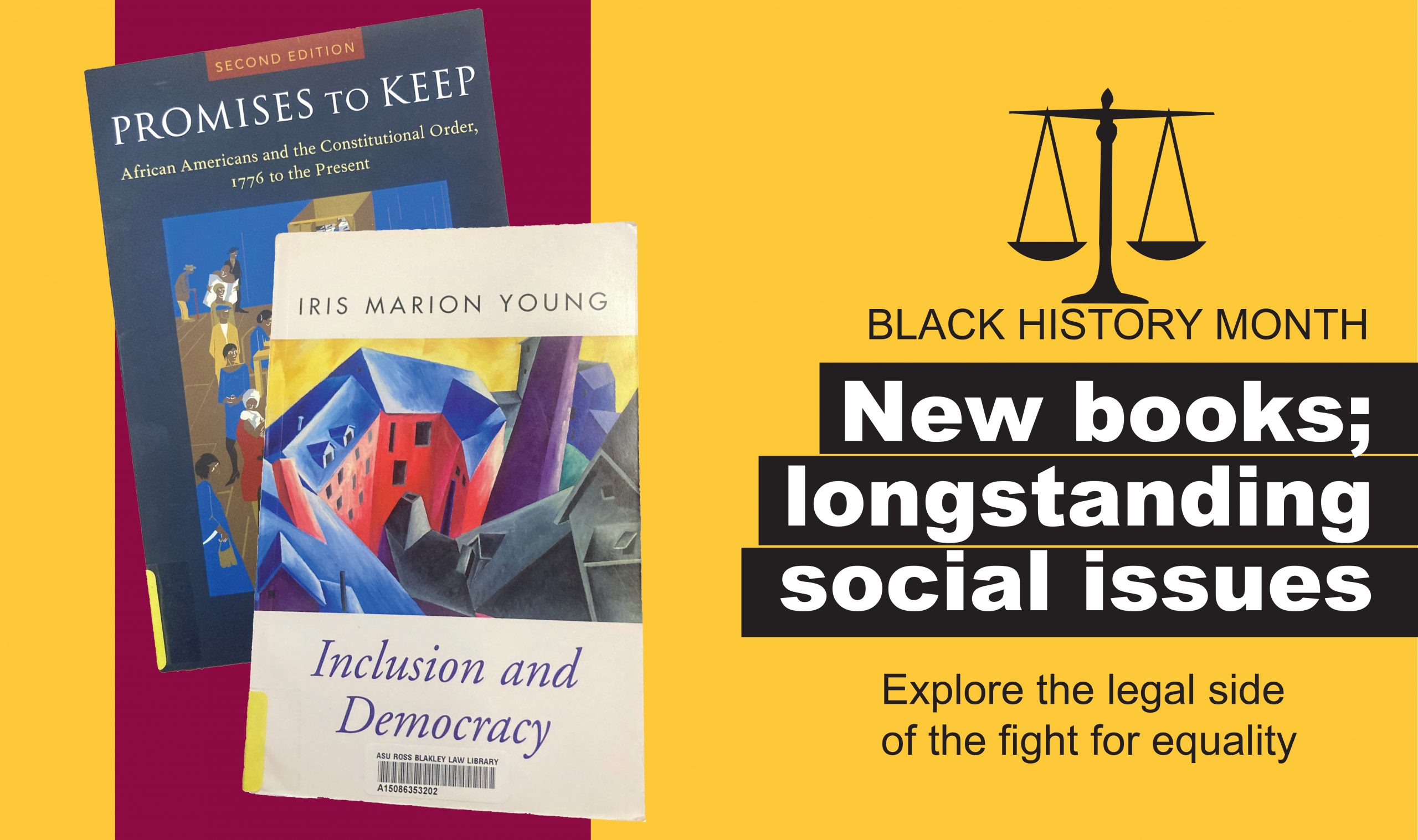Two new books just added to the Ross-Blakley Law Library collection detail the struggle for improved equality for Black Americans in the American democratic system. One takes a historical look at the development of constitutional principles over the centuries since the U.S. Constitution’s enactment. The other posits that ongoing problems are preventing equality from flourishing in American society as some voices remain unheard in democratic decision-making. Both provide vital context for current social issues.
Donald G. Nieman, Promises to Keep (2020)
This revised edition is dedicated to constitutional and civil rights law begins with the origins of the United States and the problems with founding documents in establishing equality. The revolutionary ideals behind the movement for independence did not extend to African Americans, and the Constitution originally included a decidedly pro-slavery stance. Questions swirled over the citizenship status of Black Americans generally. Promises to Keep also examines the growth of equality principles that Black Americans helped enact as the Constitution developed over the decades leading to the American Civil War. Black Americans were key in ending slavery and producing the 13th, 14th, and 15th amendments, which promote civil rights and improve voting fairness throughout the United States. The book then turns to the resistance by Black Americans of subsequent Jim Crow measures designed to reduce the social standing of African Americans, as well as the efforts to keep people separated based on skin color until well into the twentieth century. Although Black Americans in the civil rights movement created large gains in the 1960s, ongoing problems included de facto segregation, discrimination, exclusion in privileged positions of society, and lack of voting access. Voting rights, mass incarceration, affirmative action, and police remain hot button issues yet to be solved that keep the dream of equality elusive into the era of Black Lives Matter.
Iris Marion Young, Inclusion and Democracy (2002)
This academic work on democratic theory examines the machinery for progress (and hindrance) of racial equity: the true nature of democracy as it is practiced. Throughout, it incorporates the principles of critical theory, explaining how people are placed within structures in society and what that means for them, including segregation of not only race but class. The book develops a theme of inclusion and how to incorporate it within democratic systems that have not always been geared toward fully voicing the concerns of everyone in society. Alongside calls for greater integration of voices into the pollical sphere locally and nationally, it explores objections to prevailing notions of inclusivity and social justice, seeking a variety of viewpoints in the call for racial justice rather than an all encompassing dogma. It seeks to foster inclusive political communication and rebuild a politics that recognizes the importance of social difference and inequality.




